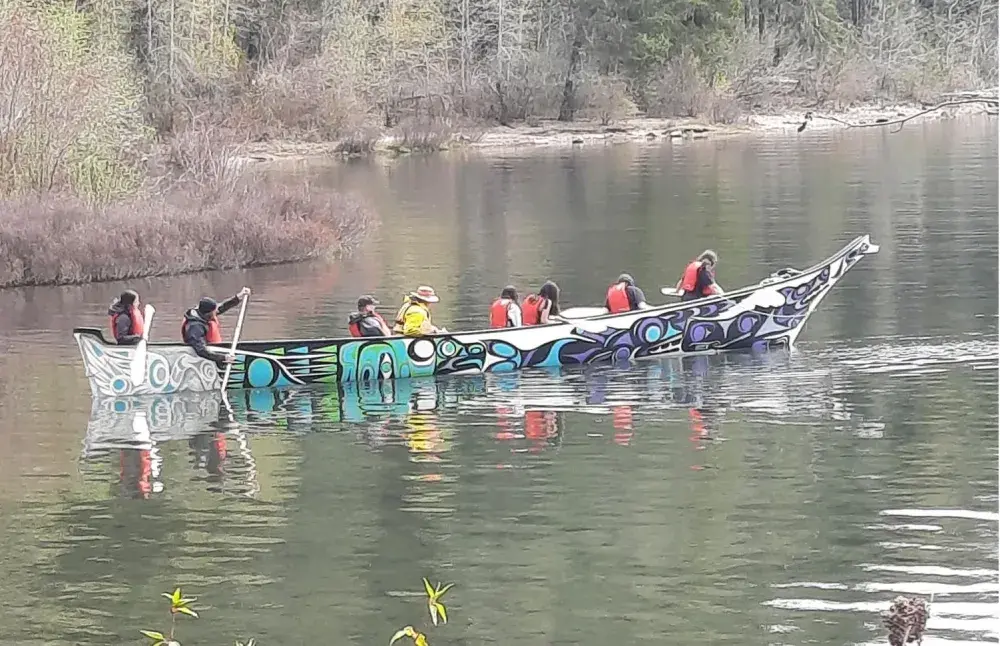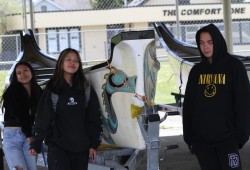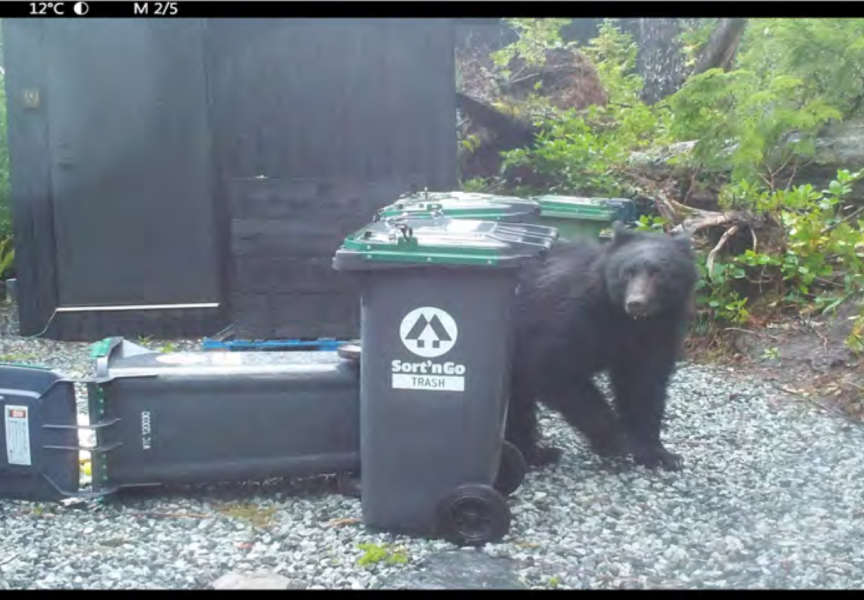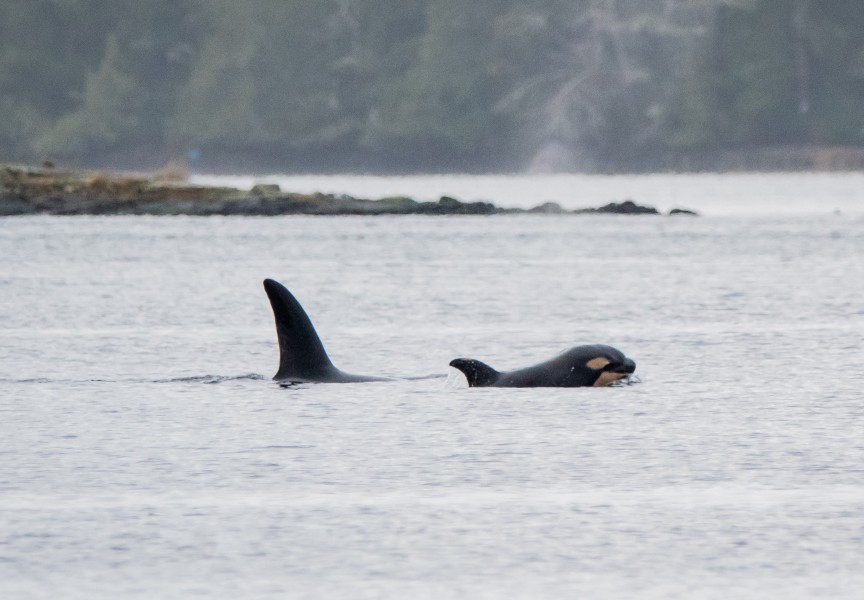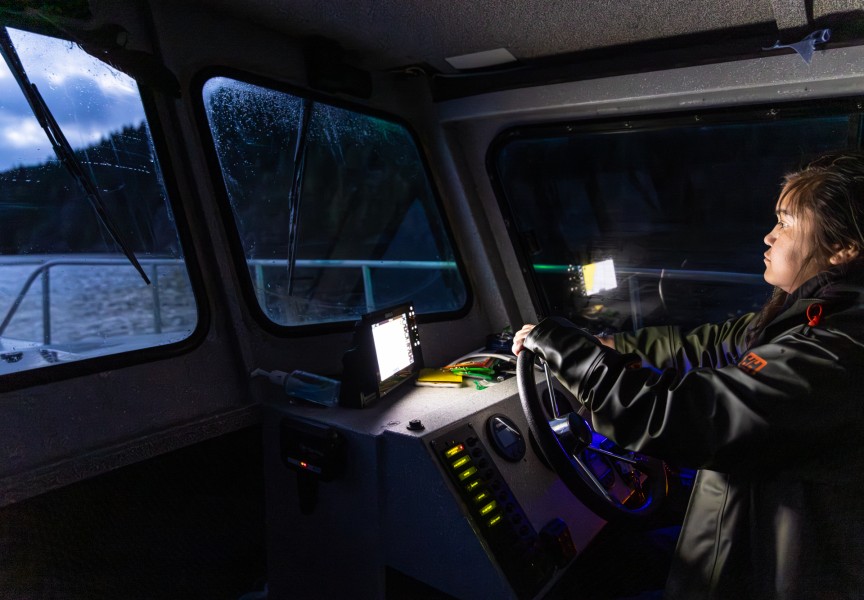The classroom is going into traditional-styled Nuu-chah-nulth canoes at the end of this school year, now that some high school students and two staff have gained training in the leadership qualities necessary to effectively navigate a č’apac.
Through a partnership between School District 70 and Usma Nuu-chah-nulth Family and Child Services, the agency has made available two traditionally designed canoes it owns to the Eighth Avenue Learning Centre in Port Alberni. In April three high school students as well as Dave Maher, SD70’s district principal for Learning and Innovation, and Indigenous Support Worker Leslie Taylor spent four days on Sproat Lake learning the dynamics of navigating the č’apac from a Paddle Canada instructor.
Over the four active days the participants learned how to safely handle the č’apac, while communicating with each other to ensure effective navigation. Instruction entailed paddling technique, communication between crew and skipper while handling different conditions and how to recover after the canoe flipped.
“We tipped the canoe, and then flipped the canoe back up, learned how to bail it, learned how to move the canoe back to safety and learned how to get the entire crew back on a flipped canoe, back to shore,” said Maher.
“When we were learning how to rescue the flipped canoe I got nervous,” admitted 18-year-old Cacey Jack, who felt empowered after the apparent disaster was solved. “It felt really good actually.”
Three high school students were chosen for the training due to their participation in a multiple-week exploratory č’apac program the Eighth Avenue Learning Centre held in the fall, which entailed half of this time on the water, half in the classroom delving into the cultural dynamics of the vessel that Nuu-chah-nulth-aht used for thousands of years.
They were also selected for their connection to the care system through Usma. Taylor was impressed with the commitment of sisters Cacey and Delylah Jack, who live independently. She said they were ready to go each day at 8 a.m.
“It was really impressive because they have nobody at home to get them ready, they have to rely on themselves,” said Taylor.
Now the five participants in the č’apac training have Big Canoe Intermediate Leader Certification, something that will come into practice in June when the Jack sisters and Devin Johnston go out on the water with Grade 6 and 7 elementary students. Their lessons are planned for Sproat Lake, Ucluelet Inlet and Pachena Bay.
“I’m excited for it,” said 16-year-old Delylah Jack of working with younger students.
“I like working with kids,” added her sister.
Maher noted that the č’apac lessons are part of the school district working more closely with its Nuu-chah-nulth communities, incorporating knowledge specific to these First Nations into classroom learning.
“It’s a classroom of the earth, a classroom of life, and they are learning some critical lessons about collaboration, communication, positive personal identity, positive cultural identity,” he said. “The č’apac signifies the importance of us working together and the better we work together, the better the č’apac works.”
For 18-year-old Devin Johnston, his favourite part was paddling and learning how to improve his communication skills. Cacey Jack appreciated being out in nature.
“It helped clear my mind,” she said. “I found it very therapeutic.”

